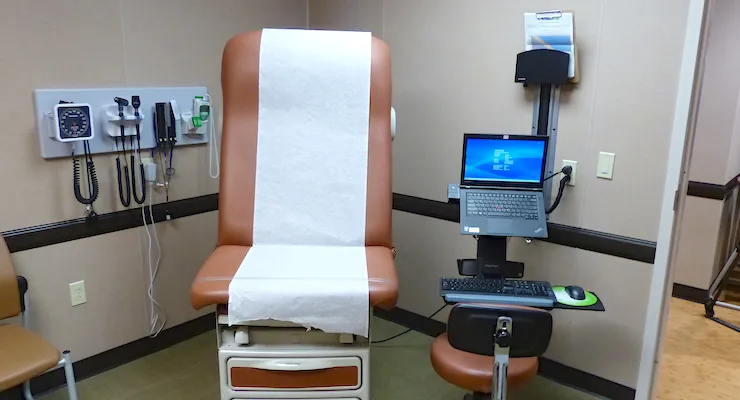The U.S. health care system does not work well for patients or providers.
We now pay twice as much as other developed countries for health care, and the Centers for Medicare & Medicaid Services (CMS) expects Americans will spend $1 out of every $5 on health care by 2025. Our country does not get much of a return on this investment. Americans have worse health outcomes and are living shorter lives than other people around the world.
Exactly how to make our health care system more efficient and effective evokes deep passion from Republicans and Democrats alike, resulting in a legislative whiplash of whether Congress will repeal and replace or just reform the Affordable Care Act. This political stalemate isn’t entirely new. Americans have fought over the federal government’s role in health care almost since the ink on the Constitution dried.

Travis Jackson, King & Spalding
Despite this ongoing standoff, three commonsense steps exist that Congress and federal and state regulators could take to improve the health care system for all Americans.
Alleviating the regulatory burden on providers, expanding value-based care in Medicare Advantage, and giving states more flexibility to implement health coverage reforms would go a long way in reducing the cost and enhancing the quality of health care.
Alleviate regulatory burden on providers
Pharmacies, hospitals and other providers are buried beneath a regulatory avalanche that imposes significant costs and impedes the efficient delivery of health care services.
The American Hospital Association studied the rapid rise in health care regulations and found that health systems, hospitals and post-acute care providers spend $39 billion each year on nonclinical regulatory requirements, with the average community hospital paying $7.6 million annually for regulatory compliance.
The effect of this regulatory burden isn’t invisible to patients. It means patients pay more and receive less time with physicians and other providers. The American Medical Association has declared this regulatory burden as a “major component” of physician burnout, requiring physicians to “spend too much of their time on administrative tasks rather than providing care to patients.”
Congress or regulatory agencies themselves should examine how to revise or eliminate existing regulations so that providers can deliver health care services in a more efficient manner.

Some aspects of easing the regulatory burden should be easy, like eliminating duplicative reporting requirements found in hospital quality and meaningful use measures or simplifying overly complex IRS requirements for the financial assistance policies, emergency medical care policies, and billing and collection activities of charitable hospitals. Other aspects might take additional time, like revisiting the physician self-referral prohibitions of the Stark law as well as other fraud and abuse statutes.
Congress should ensure that these laws and the regulations they create fit a health care system that emphasizes value-based care, and it could take the first step toward this goal by passing the bipartisan Medicare Care Coordination Improvement Act of 2017. This bill would reduce some of the barriers created by the Stark law that block physicians from entering into agreements with other health care providers to better coordinate patient care.
Expand value-based care in Medicare Advantage
Value-based payment systems reward providers for the quality, not quantity, of care they provide. Right now, many providers simply bill Medicare and other payers for each service they deliver without regard to whether a patient’s health improves as a result. This fee-for-service system, at best, promotes inefficiency and, at worst, invites fraud and abuse.
CMS has increasingly experimented with value-based payment systems for Medicare since the ACA passed, but recent studies have found that only 47% of physicians are actively pursuing value-based payment opportunities. Congress can and should do more to speed the transition toward value-based care by expanding value-based opportunities within Medicare Advantage.
Medicare Advantage allows private health insurers like Humana, UnitedHealth and Aetna to cover the medical needs of Medicare beneficiaries. Enrollment in Medicare Advantage plans has increased by over 70% since 2010, and now one out of every three Medicare beneficiaries participates in a Medicare Advantage plan.
CMS holds health insurers accountable for the total cost of care provided to the Medicare beneficiaries who enroll in their plans. This feature of the Medicare Advantage program creates a built-in incentive for health insurers to collaborate with physicians and other providers on how best to treat and manage the care of beneficiaries, such as through wellness programs or early screenings that will either prevent or identify diseases at earlier stages.
CMS has initiated a value-based insurance design program for Medicare Advantage plans. This initiative focuses on using Medicare Advantage to encourage Medicare beneficiaries with specified chronic diseases “to consume high-value clinical services — those that have the greatest potential to positively impact on enrollee health” in a manner that reduces the overall cost of care.
CMS announced last week that it is expanding this model to include a greater number of health conditions and to reach 25 states by 2019. Congress should support CMS in its efforts to test value-based care within Medicare Advantage by setting a goal to make these programs available throughout the country as soon as possible.
Enhance state flexibility for health coverage reforms
Answering the question of how to make quality, affordable health care more readily available requires looking beyond Washington, D.C. Congress should enhance the ability of states to design and test health insurance coverage reforms by streamlining the waiver process under the ACA.
States have long had the ability to test different Medicaid approaches that do not fit squarely within federal requirements. While complicated, the Medicaid waiver process has resulted in states serving as laboratories for health reform by experimenting with increasing income eligibility limits, expanding eligibility based on health conditions or demographic characteristics, implementing specialized care delivery models, and using closed or narrow networks to promote care.
The ACA offers a similar opportunity for states to test health insurance coverage models by setting aside certain federal mandates on health insurance exchanges. So far nine states have requested waivers from ACA’s requirements, but CMS has approved only four of these requests. These waivers will test a small-business option for providing health coverage in Hawaii and reinsurance models for high risk patients in Alaska, Minnesota and Oregon.
Placing either legislative or administrative hurdles in the path of obtaining waivers from ACA’s requirements needlessly increases the premiums individuals pay for health coverage and denies the country a valuable opportunity to evaluate potential solutions for expanding access to health coverage.
For example, Oklahoma had applied for a waiver in August 2017 that offered hope to approximately 130,000 people for obtaining health insurance on the state’s exchange at greater than 30% premium reductions, but the waiver languished at the federal level, resulting in its withdrawal. Congress has an opportunity to help streamline and expand the “nightmarish” waiver process for states in the bipartisan bill negotiated by Sen. Lamar Alexander (R., Tenn.) and Patty Murray (D., Wash.).
Conclusion
Fixing the health care system will take more than just these three steps. After all, as President Trump said earlier this year, health care is an “unbelievably complex subject,” and its importance to each of us requires that we search for ideas that can increase the efficiency and effectiveness of an inefficient and ineffective system.
Travis Jackson is a partner in the Los Angeles office of King & Spalding LLP. He can be contacted at TJackson@kslaw.com.







